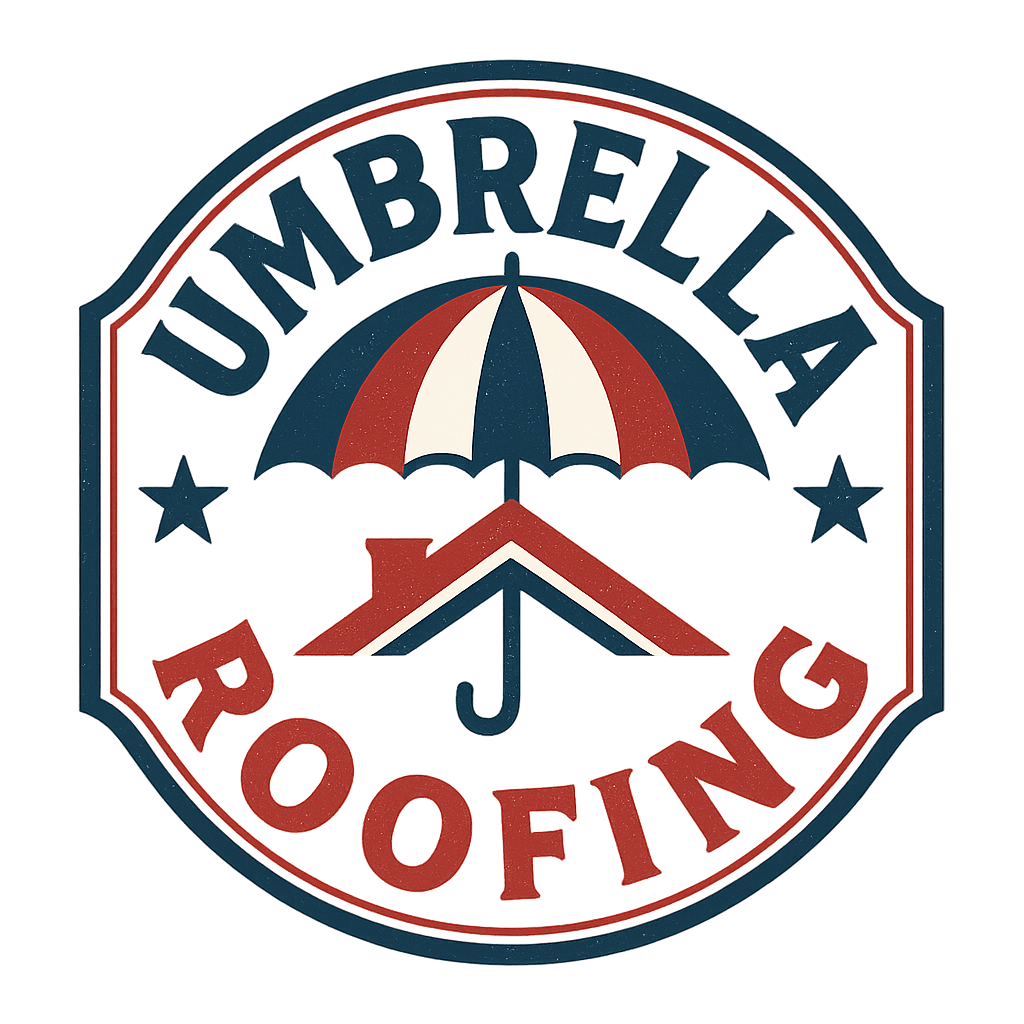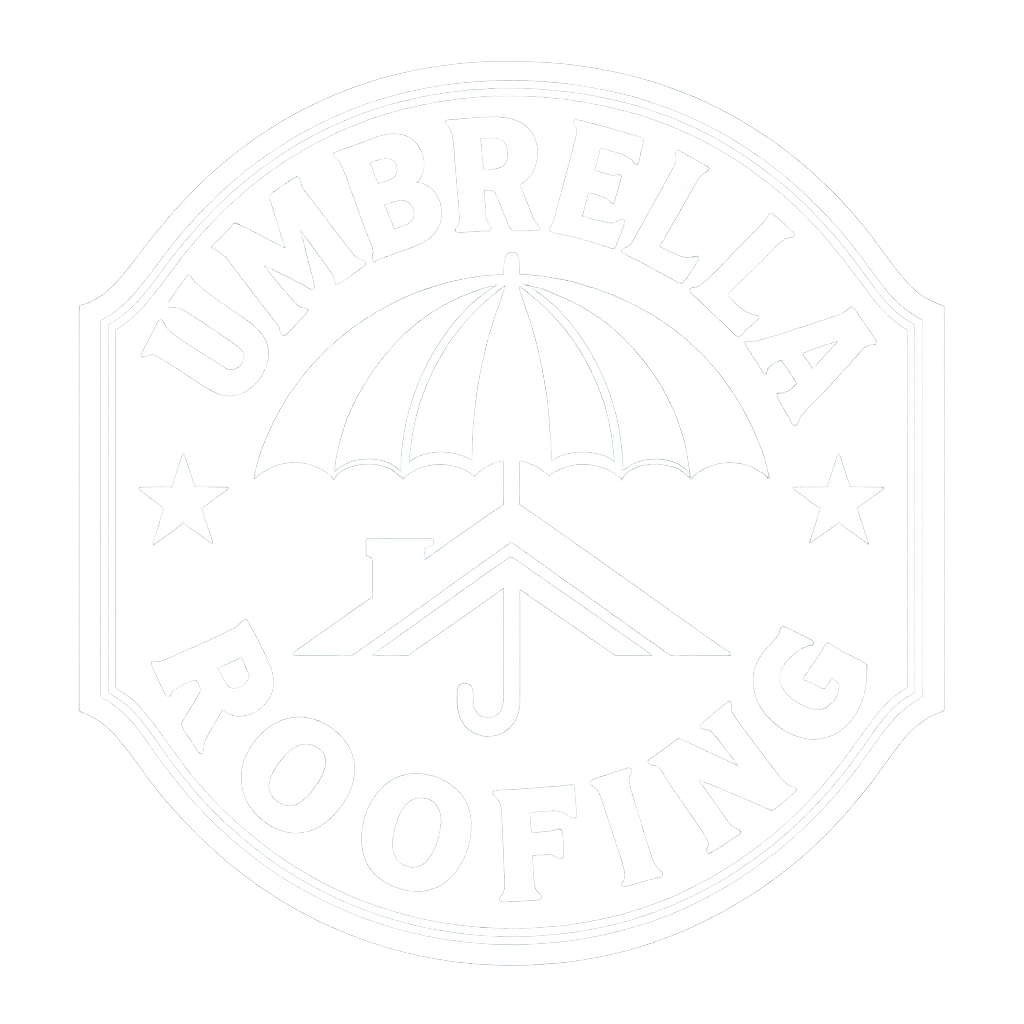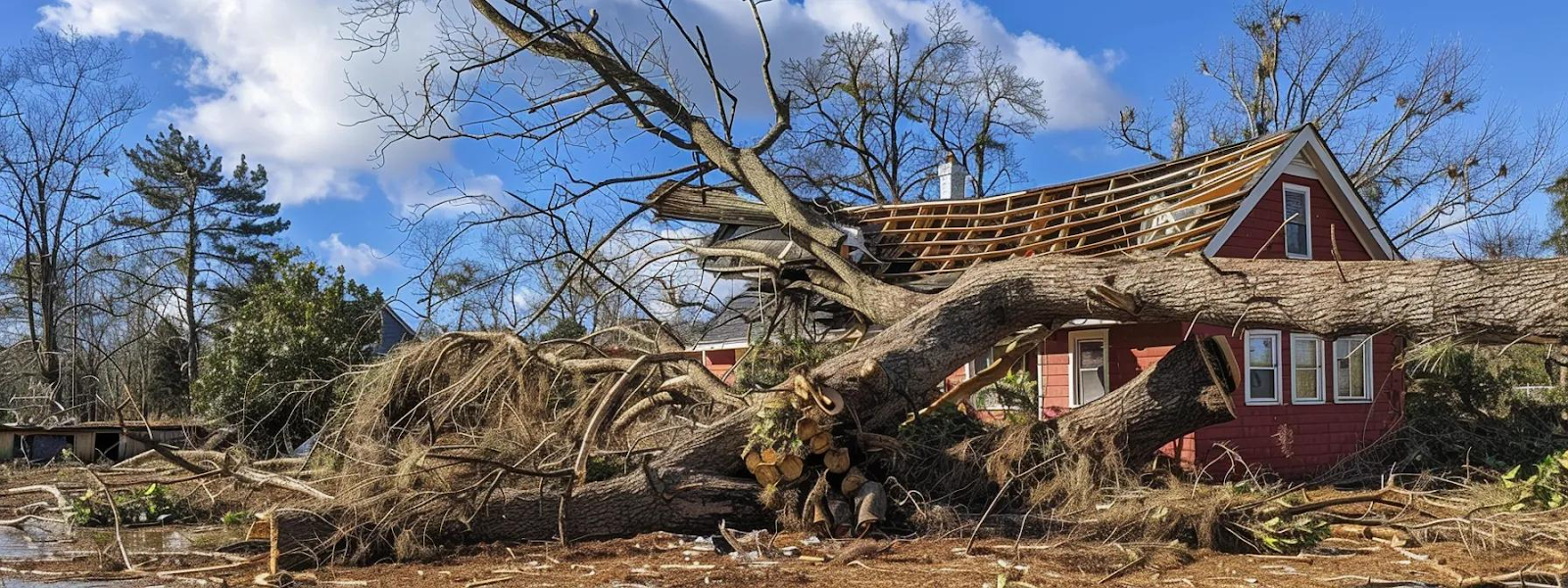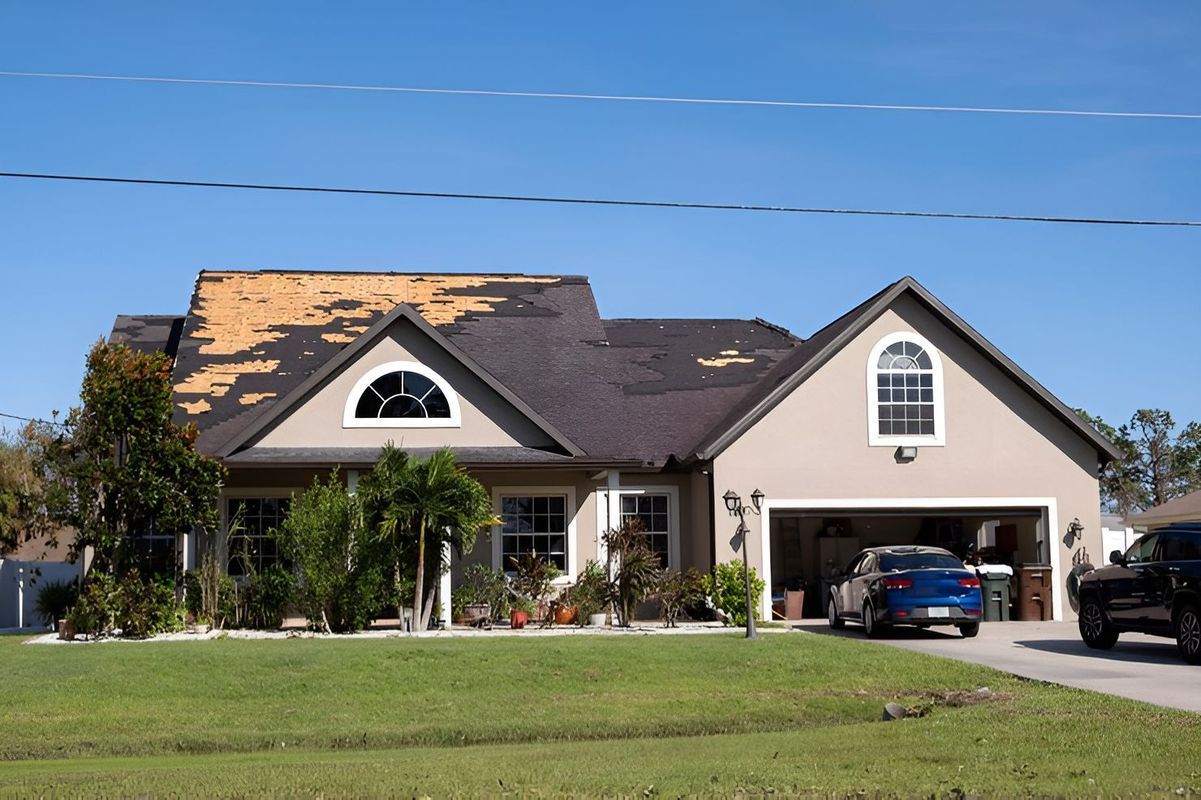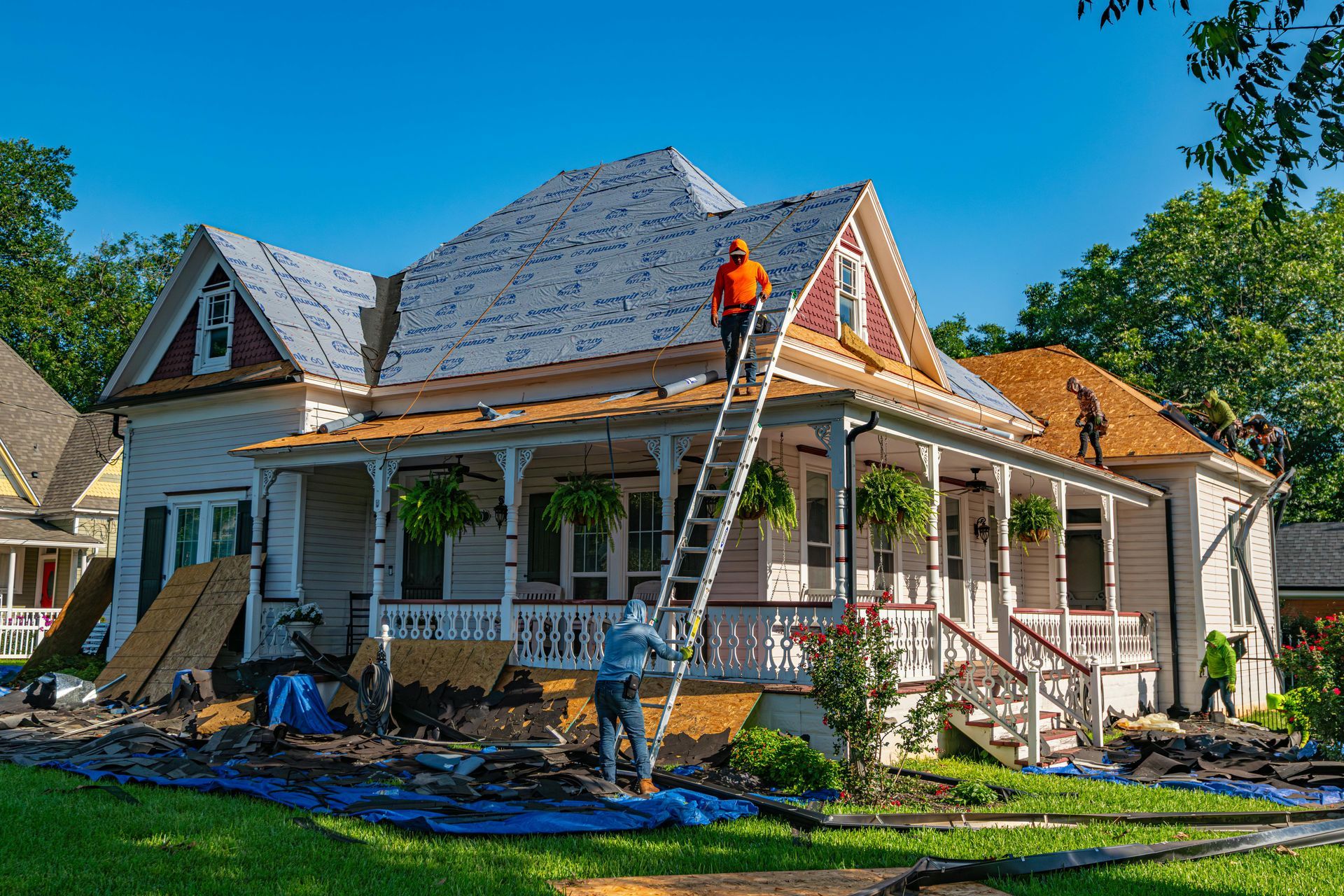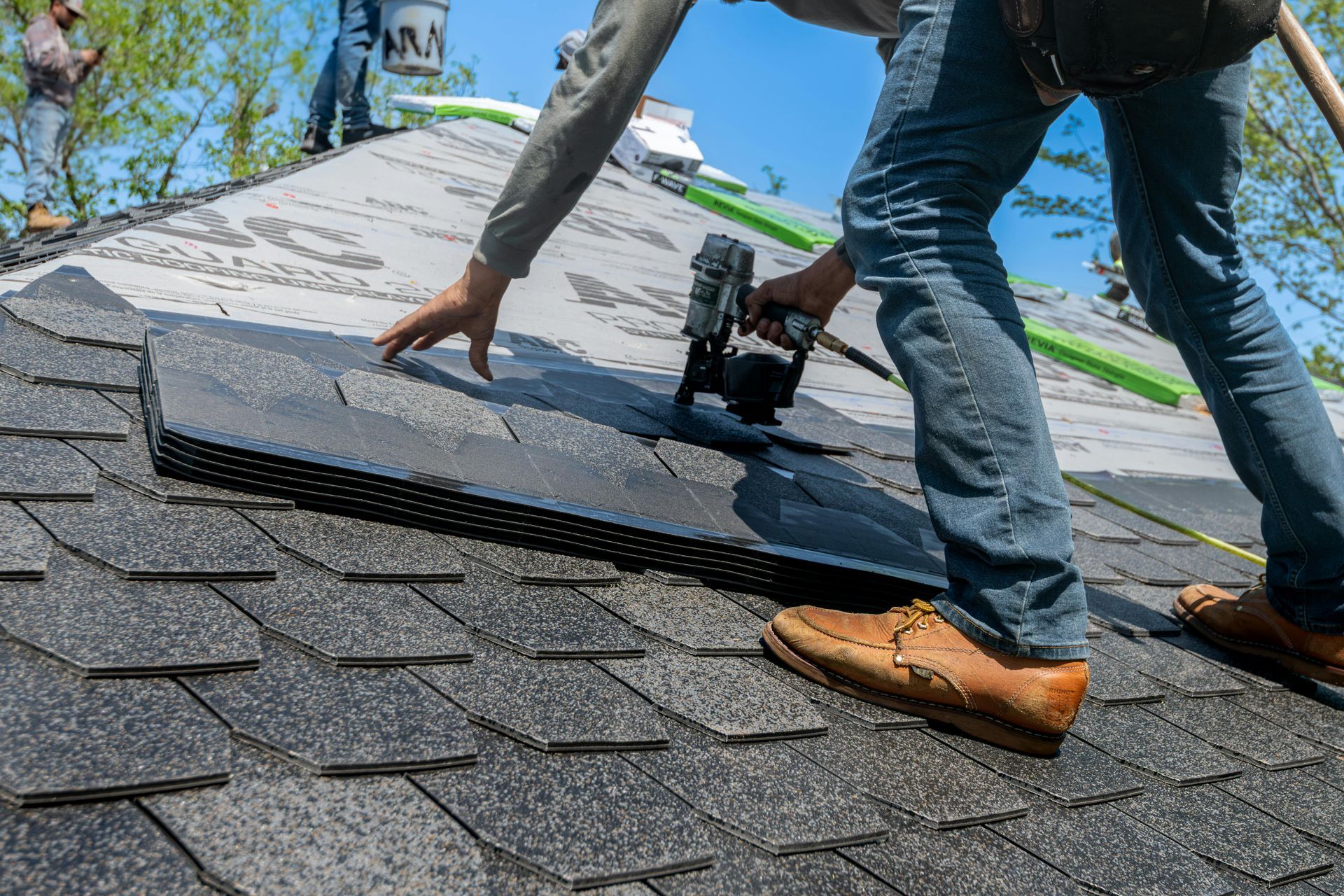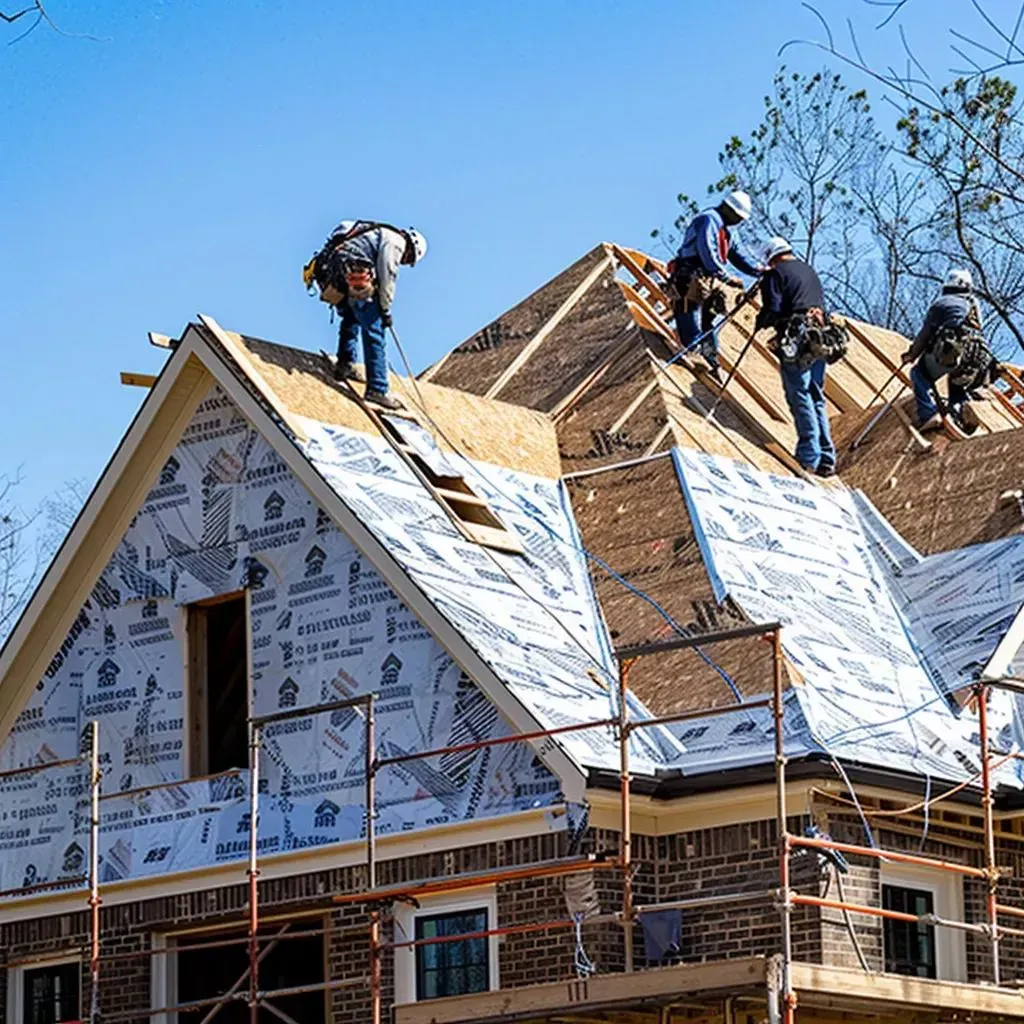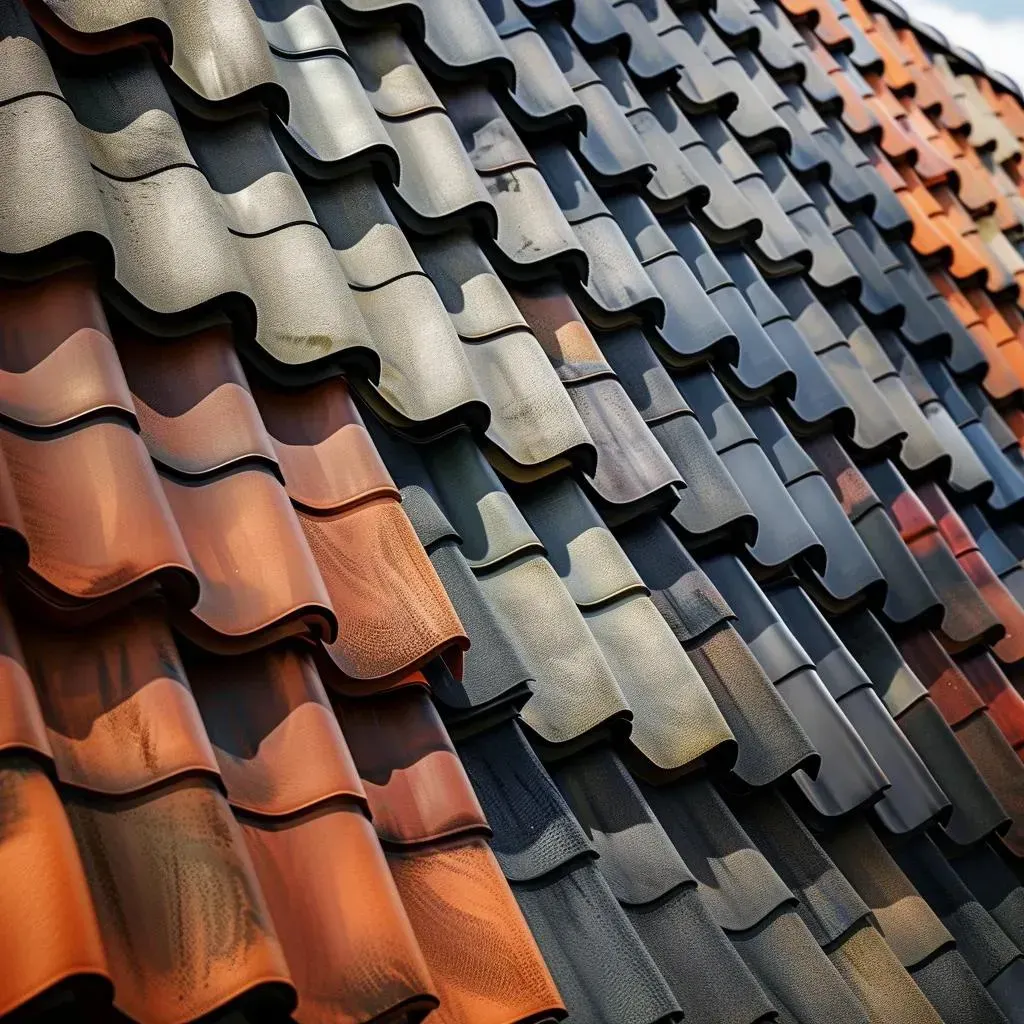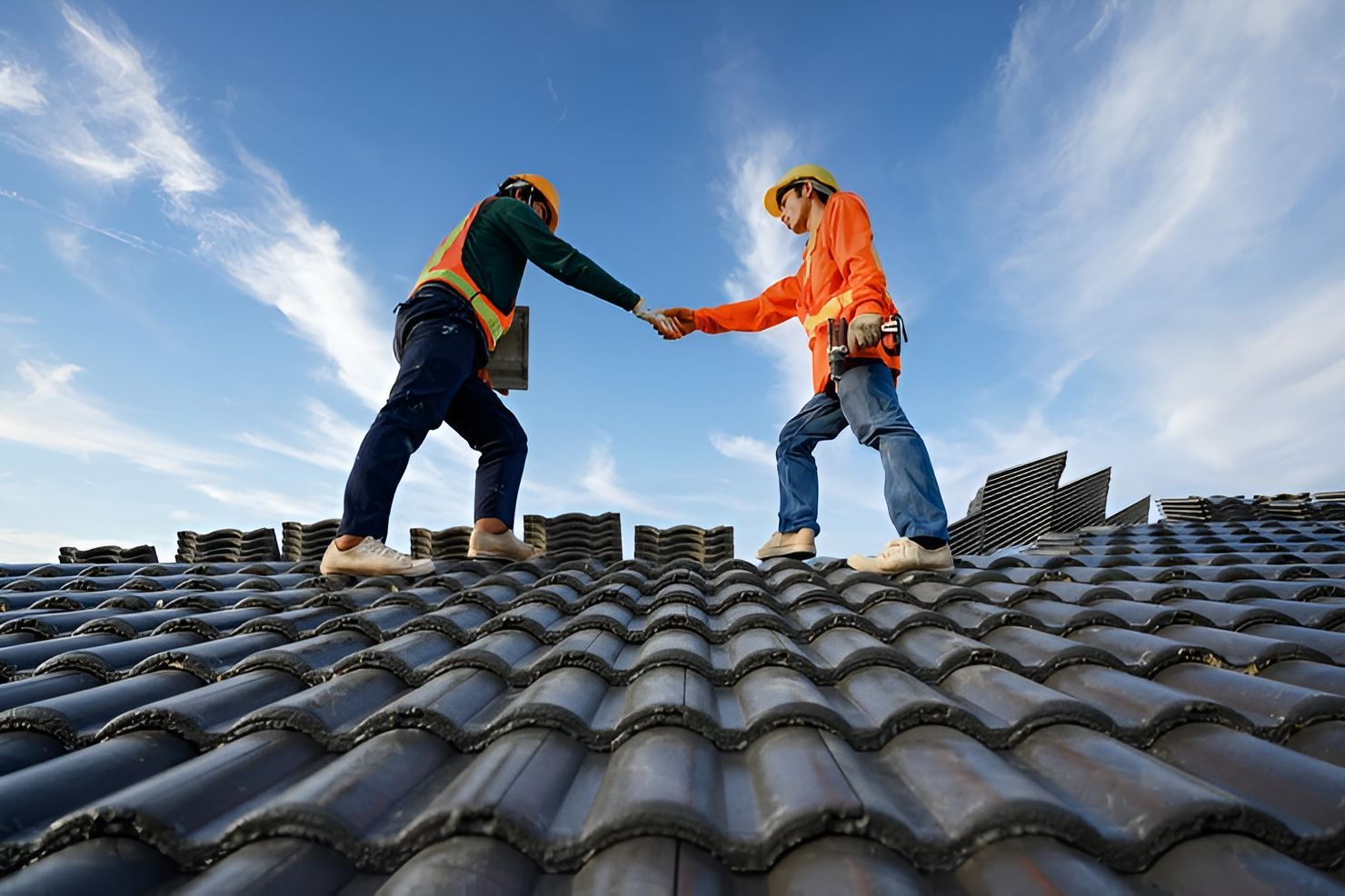Top 5 Best Materials for Commercial Roofs
When selecting the best materials for commercial roofs, property owners in North Georgia must consider durability, cost, energy performance, and resilience against local weather.
This guide from Umbrella Roofing, a roofing company Buford, Georgia businesses trust, breaks down five leading low-slope commercial roofing options to help you compare their lifespans, installation characteristics, maintenance requirements, and suitability for our humid, storm-prone region.
TL;DR — Top 5 Best Materials for Commercial Roofs
- TPO: reflective single-ply that cuts cooling loads and offers welded, watertight seams
- EPDM: durable rubber membrane with easy repairs; cost-effective for retrofits
- Metal: standing seam or R-panel for decades-long life, wind/hail resistance, strong ROI
- PVC: welded seams resist grease and chemicals; reflective for hot, humid summers
- SPF: spray-applied foam adds continuous insulation and seamless waterproofing; recoats needed
1. TPO
TPO stands for thermoplastic polyolefin. It's a single-ply roofing membrane made from polymer sheets reinforced with a polyester scrim and joined by welded seams. TPO is known for reflecting solar radiation, which helps reduce cooling loads by increasing the roof's albedo.
Its heat-welded seams create a continuous, waterproof layer that resists UV degradation and can lower energy consumption in hot, humid climates.
This leads to improved energy efficiency and simpler repairs compared to some other membranes, making TPO a popular choice for many low-slope commercial roofs.
Understanding TPO's balance of cost and performance is key for building owners deciding between short-term budgets and long-term value.
Is TPO right for your building?
Consider TPO if your priorities include energy savings, a moderate upfront investment, and straightforward maintenance for a flat or low-slope roof.
If your facility experiences significant chemical exposure or requires exceptionally strong seams, you might want to explore PVC or metal options instead.
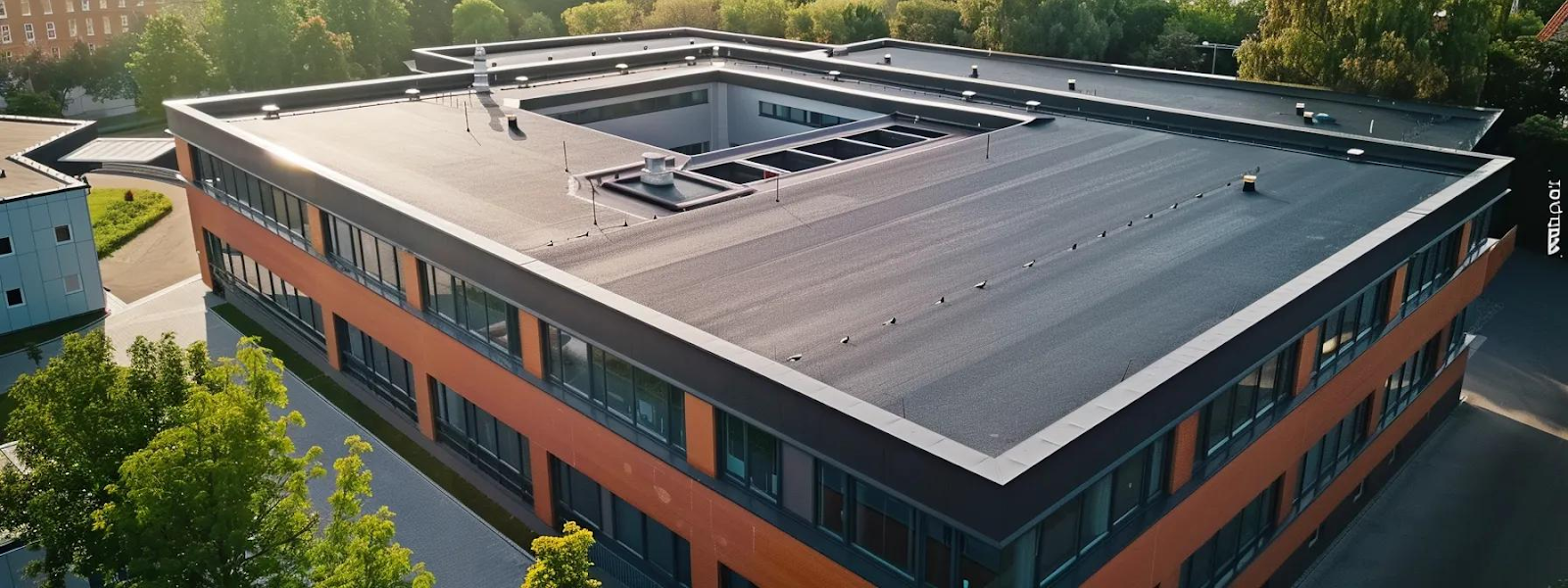
2. EPDM
EPDM stands for ethylene propylene diene monomer. It's a rubber roofing membrane available in both black and white versions, installed in sheets using adhesives, ballasting, or mechanical fasteners.
EPDM is a robust synthetic rubber membrane commonly used on low-slope commercial roofs. It offers excellent resistance to UV and weathering thanks to its single-material composition, which can be mechanically attached or fully adhered.
EPDM's elasticity provides good puncture tolerance and makes patching straightforward, minimizing maintenance disruptions for many commercial properties.
Owners often choose EPDM for cost-effective retrofits and for roofs where simple maintenance and repairability are key concerns.
It's important to weigh EPDM's lower reflectivity against its affordability when energy performance is a major factor.
EPDM suitability for North Georgia
EPDM performs well in humid, storm-prone climates, provided that inspections are scheduled regularly to catch any seam or flashing issues promptly.
Consistent checks after severe weather events can reduce the risk of leaks and extend the roof's lifespan, especially when roof traffic and debris are managed effectively.
Owners in North Georgia should consider EPDM's advantages for retrofits against potential energy upgrades, such as adding reflective coatings or insulation.
Planning your maintenance schedule and protection strategies will help you decide if EPDM or another material better meets your long-term operational goals.
3. Metal
Metal commercial roofs, including standing seam panels and exposed-fastener systems like R-panel, offer extended lifespans, robust resistance to wind and hail, and flexibility for retrofitting over existing decks.
Coatings and high-reflectivity finishes can further enhance energy performance and mitigate thermal cycling that stresses fasteners.
The inherent strength and longevity of metal provide significant lifecycle value, even with a higher initial investment.
The balance between cost and durability often makes metal the preferred choice for buildings where minimizing replacement disruption over many decades is a priority.
Types of metal commercial roofs
Common types include standing seam, which hides fasteners for superior weatherproofing, and R-panel or corrugated systems, favored for their lower cost and faster installation.
Standing seam panels interlock to effectively shed water and resist uplift, while exposed-fastener panels rely on screw attachments and require more attention at the fastener points.
Coated metal options add reflectivity and corrosion resistance, extending the roof's lifespan. The choice among these types depends on your budget, the level of wind exposure, and your aesthetic preferences for the facility.
Best uses for metal roofing
Metal roofing is an excellent choice for sloped commercial buildings, facilities demanding long-term performance, and properties where minimizing downtime is critical.
For owners focused on enduring protection, especially Buford businesses, metal roof retrofits can preserve the existing structure and reduce overall lifecycle costs.
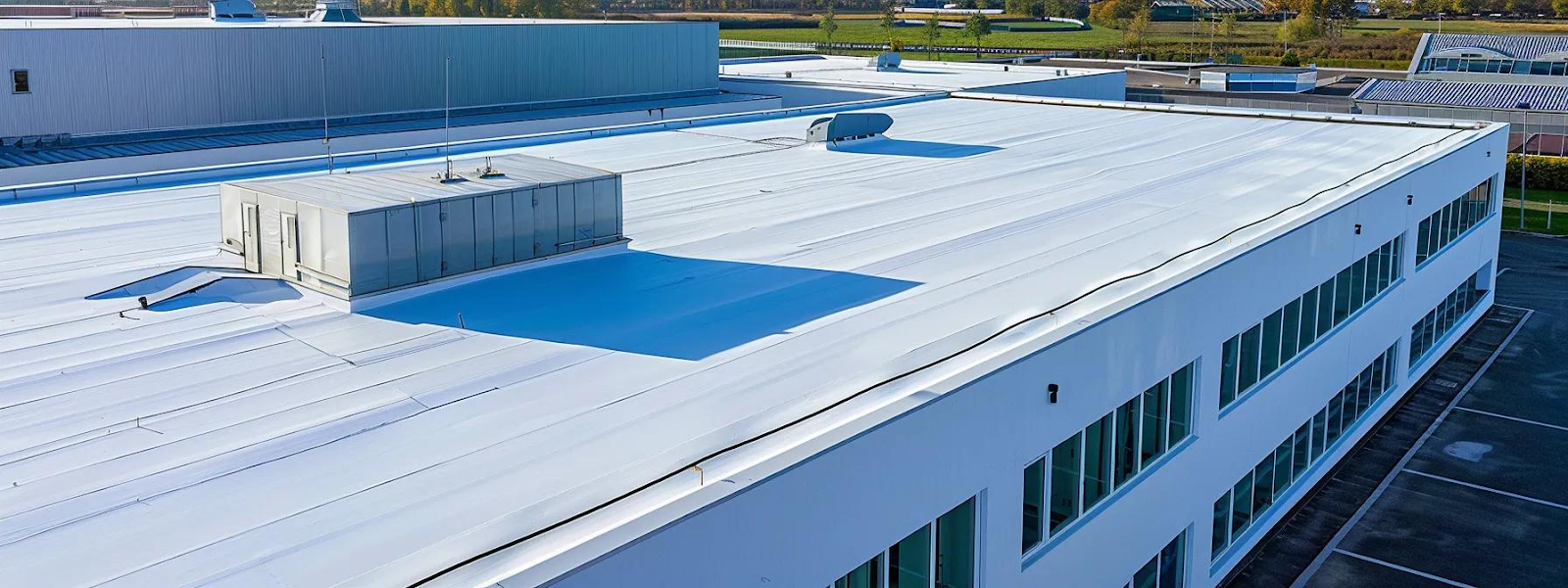
4. PVC
PVC, or polyvinyl chloride membrane roofing, utilizes welded seams that stand up well to grease, oils, and certain chemical exposures common in restaurants and industrial settings. Its composition ensures strong seam integrity and durability in environments where spills or exhaust byproducts might affect the roof surface.
PVC typically offers good reflectivity and a longer expected service life than some other single-ply alternatives, making it a strong contender when chemical resistance and cleanliness are paramount.
PVC for North Georgia businesses
PVC is an excellent choice for restaurants, food-service establishments, and facilities with rooftop exhaust or grease exposure in North Georgia, including many Buford businesses.
The membrane's reflectivity also helps combat cooling costs during our hot, humid summers. Maintenance plans should include regular inspections of seams and flashings, especially after storms, to ensure long-term performance.
For businesses seeking to balance specialized protection with energy efficiency goals, PVC often provides a strong lifecycle return on investment despite its higher initial cost.
5. SPF
Spray polyurethane foam is applied as a liquid that rapidly expands into a rigid foam, forming a continuous insulating and waterproof layer over the roof deck that conforms to even complex shapes, providing excellent insulation (R-value) and minimizing seams that can lead to leaks.
Periodic recoating every few years is part of SPF's lifecycle maintenance, but the system can significantly reduce heating and cooling loads and extend the roof assembly's useful life.
SPF's adaptability makes it highly valuable for complex roof geometries and for upgrading insulation in existing structures.
Is SPF right for your facility?
Choose SPF when enhancing insulation and achieving seamless waterproofing are top priorities, especially for complex roof geometries, or when the HVAC savings justify the cost of recoating.
Be sure to budget for scheduled recoats and ensure that qualified applicators handle the project to prevent adhesion or curing issues.
SPF is often selected for retrofits where adding continuous insulation and sealing leak paths deliver measurable energy and maintenance benefits.
For facilities balancing insulation performance with long-term maintenance planning, SPF is a strong candidate.
Why Choose Umbrella Roofing for Your Commercial Roofing Material Needs in North Georgia?
Umbrella Roofing is a family-owned, full-service roofing contractor providing expert commercial roofing installation, replacement, repair, and storm damage restoration.
We handle a wide array of materials, including TPO, PVC, EPDM, metal roof retrofits, roof coatings, and spray polyurethane foam roofing, matching the material expertise discussed above.
As a leading roofing company near Buford, Umbrella Roofing supports commercial owners who need both technical material guidance and practical assistance with claims or emergency repairs in our storm-prone region.
How to get started
Begin by scheduling an inspection to align your roof's condition with the most suitable material options. Following that, you'll receive a written estimate, and we can assist with insurance coordination if necessary.
Umbrella Roofing's typical process is: Inspection → Estimate → Insurance Assistance → Installation. This streamlined approach helps busy facility managers make decisions efficiently.
Conclusion
Selecting the right commercial roofing material is crucial for maximizing durability, energy efficiency, and long-term cost savings. Each option offers distinct advantages suited to specific needs and the environmental conditions found in North Georgia.
By understanding these materials, property owners can make informed decisions that enhance their building's performance and longevity.
Schedule your Same-Day Inspection with Umbrella Roofing today to explore the best roofing solutions for your commercial property, whether you're in Buford or elsewhere in North Georgia.
